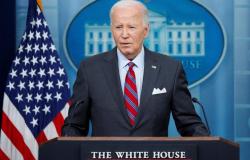Carried away by a devastating allergy. A monument of French cinema passed away on the evening of Thursday October 3. Major figure of the Splendid troupe, genius actor and talented director, Michel Blanc has died at the age of 72.
If the first elements transmitted to the press mentioned a “heart attack” as the cause of death, the actor of Les Bronzés and Tenue de soir would have more precisely succumbed, according to BFM TV, to the consequences of anaphylactic shock, “an allergic reaction rare, but serious, which took the form of Quincke’s edema”, specifies the television media.
The most serious and dangerous form of the allergy
As explained in an article from the National Institute of Health and Medical Research (Inserm), anaphylactic shock constitutes “the most severe form of anaphylaxis”, which is itself “the most severe manifestation of allergy. It is therefore quite simply the most serious allergic reaction and the most dangerous for health, which can affect around 5% of people affected by allergies, according to Santé Magazine.
Anaphylaxis is most often caused by an overly intense reaction of the body to exposure to an allergen. “Anaphylactic shock is an abnormal immune response to the intrusion into the body of an allergenic agent to which the person is particularly sensitive,” explains Doctor Marc Perrussel, venereologist and dermatologist, quoted by Santé Magazine. This reaction is particularly rapid since “it occurs within the minutes or hour following contact with the causative allergen.”
Caused by food in 60% of cases
According to Inserm, many different allergens can cause this type of reaction, but the public body specifies that 60% of cases of anaphylactic shock are caused by a food allergy. Among the allergens most often identified, we find some great classics: milk, eggs, sesame, shellfish, fish and nuts.
The other two main types of allergens causing these reactions are respectively hymenoptera venoms (bees, wasps, hornets) and medications, which each correspond to 16% of medical diagnoses of anaphylactic shock. In the case of Michel Blanc, it seems that it was a medication, and more precisely, according to BFM TV, “a contrast product used during a medical examination”, which caused the allergic reaction.
Sudden, varied and severe symptoms
On a physiological level, anaphylactic shock therefore corresponds to an uncontrolled response of the body to this exposure to an allergen. Inserm explains that this response is in fact “an inappropriate activation of cells of the immune system, the mast cells of the tissues and the basophils of the blood, causing in a few seconds/minutes a massive release of histamine, the molecule at the origin of the symptoms “.
Particularly spectacular, these can quickly take on very serious proportions. Santé Magazine thus mentions a multitude of physiological manifestations “respiratory (asthma attack), ENT (rhinitis), ophthalmological (conjunctivitis), cardiac (alteration of heart rate), skin (angioedema, diffuse urticaria), digestive (vomiting, stomach aches), neurological (discomfort, syncope, etc.)”.
Absolute medical emergency
As Inserm indicates, these symptoms most often appear within the minutes following contact with the allergen and then tend to worsen. Anaphylactic shocks therefore constitute absolute medical emergencies, which must be treated as quickly as possible.
The public service institute adds that there is only one emergency treatment for this type of reaction: intramuscular injection of adrenaline, which is confirmed by the Swiss Medical Review. This must be followed by hospitalization and other substances (corticosteroids, antihistamines) can then be administered to the patient to alleviate the symptoms.
The major risk linked to anaphylaxis, however, concerns the severity that they can quickly take. Thus, in the case of Michel Blanc, according to BFM TV, the anaphylactic shock took in a few minutes “the form of Quincke’s edema”, that is to say a sudden swelling of the internal mucous membranes (tongue and throat) which then caused cardiac arrest. Despite their rapid intervention, emergency services were subsequently unable to resuscitate the actor.






